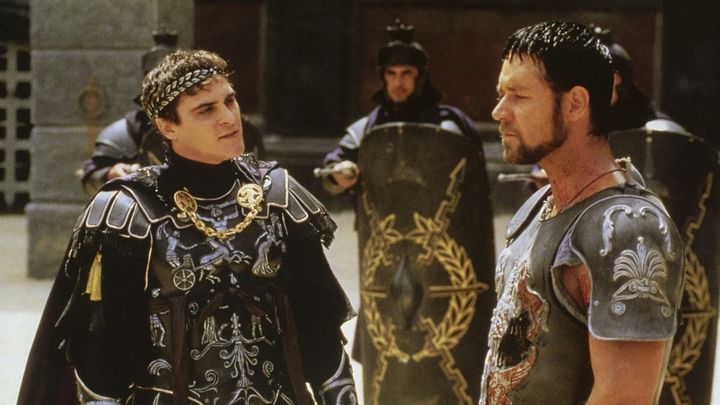Gladiator Came to be Because of a Single Painting
Gladiator's producer, Douglas Wick, gave an interview in which he talked about behind the scenes of the film and the progress on the sequel. He mentions a certain painting and Steven Spielberg, among others.

- Gladiator's producer revealed in an interview that Steven Spielberg was involved in the project from the beginning;
- He added that convincing Ridley Scott to direct wasn't simple, and it was achieved mainly thanks to a two hundred year old painting;
- The work on the sequel to Gladiator was also confirmed.
Douglas Wick is not the person one would associates by name, although his considerable contribution to world cinema is undeniable. He has produced such titles as The Great Gatsby, Lawless or Spy Game, but Gladiator has gained the greatest fame of all.
Hollywood Reporter conducted an extensive interview with Wick, who revealed many interesting details from Gladiator's set and pre-production. It turns out that big names were involved in the project right from the start:
"Well, first of all, we were making the movie with DreamWorks. So, from the very beginning, Spielberg was completely on board, and it was a very unusual relationship with the studio. He and Walter Parkes [producer of the Men in Black movie series - editorial note] were completely partners in the process."
Interestingly, the idea for the plot did not come from an empty desire to attract viewers with many attractions. Wick was charmed by the script's cultural and social aspects:
"A writer came to me and said, “Let’s do something in the Roman arena.” And he basically showed me in the research that the Roman arena was equivalent to the space program. It was such a focus of the culture that so many resources were piled into it. There were so many technologies created, like animal husbandry and water control. It was also such a gigantic political tool, which is in terms of distracting the masses from more serious issues through entertainment. So, anyway, it felt very relevant."
From the very beginning, Ridley Scott's involvement was uncertain. Wick was very interested in the director, so he tried to convince him in many ways. Eventually he persuaded the creator of Alien with a certain painting:
"And we brought Ridley a painting from the late 1800s of the Roman Colosseum. It was beautifully shaded, and because it was sort of in the blush of the British Empire, it was slightly idealized. Ridley looked at the painting and said, “I’ll do the movie. Wherever the script is, we’ll get it right. I’m doing this movie.”"
Persistence in convincing Scott certainly paid off to the producer of Gladiator. The work received five Oscars, including the most important one for the best film. Wick intends to return to the title as a sequel. He confirmed in an interview that the work has been going on for several years, but at a slow pace. Many scriptwriters are said to be afraid to try their hand at tackling the high bar set by the original.
- „It depresses me.” Benedict Cumberbatch is afraid of AI and believes that because of it „we are in danger”
- Stranger Things 5 will see the most violent death in the entire series. Until now, the Duffer brothers have „refrained” from showing such violence in the Netflix hit
- Who is Mr. Whatsit in Stranger Things season 5? The Netflix hit features references to A Wrinkle in Time
- movies
- cinema
- DreamWorks
- movie & TV series trivia
- antiquity
0

Author: Karol Laska
His adventure with journalism began with a personal blog, the name of which is no longer worth quoting. Then he interpreted Iranian dramas and the Joker, writing for cinematography journal, which, sadly, no longer exists. His writing credentials include a degree in film studies, but his thesis was strictly devoted to video games. He has been writing for Gamepressure since March 2020, first writing a lot about movies, then in the newsroom, and eventually, he became a specialist in everything. He currently edits and writes articles and features. A long-time enthusiast of the most bizarre indie games and arthouse cinema. He idolizes surrealism and postmodernism. He appreciates the power of absurdity. Which is probably why he also tried soccer refereeing for 2 years (with so-so results). He tends to over-philosophize, so watch out.
Latest News
- „A lot has become lost in translation.” Swen Vincke suggests that the scandal surrounding Divinity is a big misunderstanding
- Stuck in development limbo for years, ARK 2 is now planned for 2028
- Few people know about it, but it's an RPG mixing Dark Souls and NieR that has received excellent reviews on Steam, and its first DLC will be released soon
- AI „won't make The Witcher 5,” but CD Projekt Red doesn't despise it. Artificial intelligence isn't responsible for massive layoffs in the game industry
- This is expected to be the biggest year in the company's history. Blizzard prepares an offensive that will overshadow previous years

